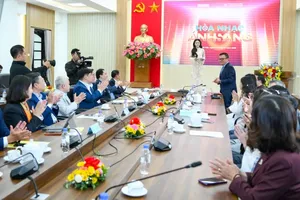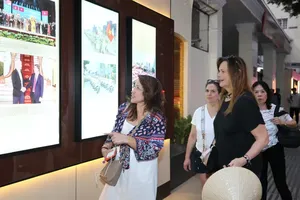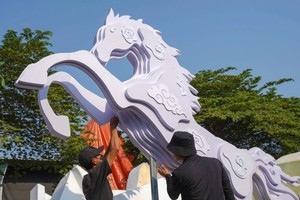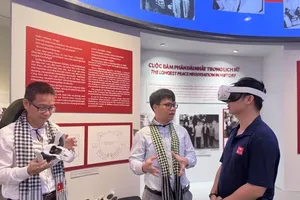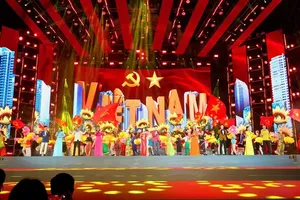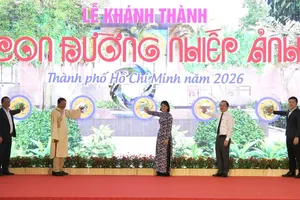The 4th Ho Chi Minh City International Music Festival - Ho Do in 2024 contributes to promoting the brand and shaping the cultural industry in the city.
Despite its potential, the implementation of public-private partnerships (PPPs) in the cultural sector has faced significant challenges, particularly regarding legal frameworks and financial mechanisms.
Public-private partnership cooperation is a strategy for mobilizing social resources to foster the development of relevant sectors and industries, thereby contributing to the socio-economic advancement of the nation and local communities. Under this model, public and private entities collaborate by equally sharing resources, production tools, responsibilities, benefits, and risks, all aimed at serving the community's interests.
In the world, PPP has become a popular trend and is increasingly expanding with many different forms and types such as: BOT, BOLT, BOO, BOOST, BFI, BTL, ROT.
In the Asia-Pacific region, countries like China, South Korea, and Japan have effectively leveraged public-private partnerships to bolster their cultural industries.
At a joint scientific workshop on 'Public-private partnership in cultural development' organized by the Vietnam National Institute of Culture and Arts Studies (VICAS) and the Ho Chi Minh City Institute for Development Studies (HIDS), Associate Professor Nguyen Van Thang Long of RMIT University Vietnam emphasized that the success of the PPP model in the cultural sector hinges on the timely promulgation of specific legal frameworks that effectively guide the implementation of the PPP Law within this domain.
According to him, the State must first identify essential cultural sector at the national, regional, and local levels that necessitate collaboration with private enterprises. Given the significance, vision, and long-term impact of cultural investment, it is imperative for the State to promote or suggest investments from leading enterprises in Vietnam, as well as in various regions and localities. This approach will ensure adherence to the implementation roadmap aligned with the group's development strategy and corporate social responsibility initiatives.
Additionally, it is crucial to safeguard the rights and legitimate interests of the investing enterprises in both the short and long term. Currently, the public-private partnership (PPP) investment model in the cultural sector is being piloted in only 4 out of 63 provinces and centrally governed cities. Since the National Assembly approved the pilot policy, only Ho Chi Minh City has released a list inviting investment in six cultural projects. Although the PPP investment model has existed for some time, its application has predominantly been in the transportation sector, primarily executed through the build-operate-transfer (BOT) contract method.
Consequently, when considering emerging sectors like culture, investors may encounter challenges in evaluating revenue, expenses, operational capacity, and the ability to service debt, which are essential for assessing financial viability.
This was evident during the Investment Promotion Conference focused on cultural and sports initiatives in Ho Chi Minh City in October 2024, where several investors showed interest in utilizing O&M contracts. These contracts allow investors and PPP project entities to operate and manage either a portion or the entirety of existing infrastructure and systems for a specified duration within cultural PPP projects.
Nguyen Hong Van, Deputy General Director of Ho Chi Minh City State Financial Investment Company (HFIC), explained that a public-private partnership (PPP) investment project comprises a set of proposals for investing in the provision of public goods and services.
Therefore, it is necessary to clarify the concept of "public cultural products and services" in cultural projects
The build-operate-transfer (BOT) contract is a specific type of PPP arrangement where investors and enterprises are granted the right to construct public infrastructure, operate it for a defined period, and then transfer it back to the Government. This model allows investors to recoup their investment through the revenues generated during the operational phase.
Upon expiration of the contract term, the investor and the enterprise implementing the public-private partnership (PPP) project shall transfer the project back to the State. Accordingly, the expert emphasizes that clearly defining the concept of "public cultural products and services" is crucial for investors to conduct meaningful investment research. The cultural industry's development serves as the foundation and driving force for the cultural advancement of every nation.
PPP cooperation in culture can be implemented in many different forms, but the core of PPP cooperation in the cultural field is not only mobilizing resources from the private sector to reduce the financial burden on the state budget, but also empowering the private sector and the public in implementing and selecting cultural activities.






